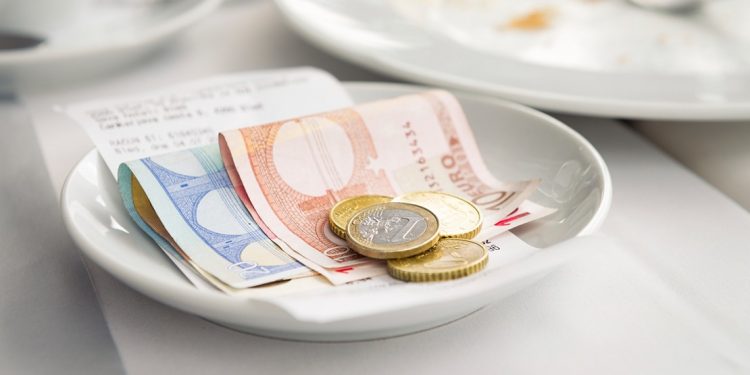Courteous or Offensive? When Tipping Abroad Is Appropriate
To Tip or Not to Tip
It’s something every traveler has experienced: that awkward moment when a guide is wrapping up their tour, or when you are counting out the change for your bill in a restaurant, and you freeze with your hand over your wallet. Should you tip, and if you do, how generous should you be?
It can be confusing and stressful trying to figure out the tipping etiquette in a given country. It is important to remember that while you may want to reward excellent service, it is not always appropriate or acceptable according to the country’s unique customs to tip, and you should not force your own customs on people in other cultures.
Tipping automatically, or tipping large amounts when you’re uncertain what the usual sum would be, isn’t always a good thing. While most people won’t say no to someone handing them money, tipping can cause problems in local economies and cultures, and create expectations where none existed before.
At the same time, there is nothing more awkward than tipping too little, or not at all, when it is an expected custom and the service provider relies on gratuity to get by. So in what countries do you tip, what do you tip for and how much? We answer all that below.
North America
Tipping in North America is a standard response to any service received. Wait staff in restaurants rely on tipping to supplement their wage, so it’s considered to be rude to not tip at all. 15 to 20% is the expected tip in Canada and the United States, but it’s not uncommon for people to tip more than that if the service was exceptional.
In Mexico, the standard is closer to 10 to 15% but in some restaurants a service charge is already included in the bill. In this case, wait staff still expects an additional 5%.
In Canada and the United States, it’s expected that you tip cab drivers 10 to 20%, whereas in Mexico a 10 peso tip is only necessary if the driver was exceptional.
In Mexico, there are some other services you should be aware of where a tip is expected. Musicians playing inside restaurants, gas station attendants, grocery baggers and car window washers all expect a five to 10 peso tip for their work.
Europe
Here’s your most important tip: don’t fret about tipping in Europe. While no server is ever going to say no to a tip, tipping in Europe is not as common as it is in North America, and in many countries it is not expected at all.
When gratuity is given, it is significantly more modest than in North America. So how do you know how much to tip? Tips are usually a euro or two left on a table after a meal, or the price of your drinks rounded up.
The amount tipped depends on your personal tipping philosophy. Because tips are not necessarily expected, there is no “wrong” amount: whatever you choose to leave as a tip will be appreciated.
When eating out at restaurants with table service, check the bill to see if service is included. In many countries, like France and Italy for example, this is automatically included and negates the need to leave a tip, unless you were particularly impressed with the service or food.
If service isn’t included, a tip of around 5% is appropriate. More than 10% is considered very generous.
In London restaurants, a 12.5% tip is added to the bill but this is strictly optional, and you should only tip what you feel is appropriate. In general, wait staff are well paid in European countries, so tips are a much appreciated bonus but not the main source of their livelihood.
Australia and New Zealand
Tipping is a variable practice at best in both Australia and New Zealand. Because it is a relatively new concept, there are no hard and fast rules about when and how much to tip.
In general, it isn’t expected, so there is no real need to tip. Restaurant workers do not rely on tips in either Australia or New Zealand, so do not feel obliged to tip.
For exceptional service in cafes and restaurants however, a tip is always appreciated.
Asia
In general, tips are not expected or given by locals in Asia. In some touristy areas, workers in hotels, bars and restaurants have become accustomed to tips and will accept them without offense.
In China, for example, traditionally there is no tipping, but it is allowed in some hotels. If you feel like a certain service was exemplary, you may leave a tip, but overall it is not necessary and may be easier avoided to dodge complications.
The same goes for Japan, where tipping is foreign to their culture and can cause confusion, amusement and even offense. Leaving money out in the open on your table or in your hotel room is considered especially indiscreet and rude.
In South Korea, tipping is often considered an insult, and if there is a service charge it will simply be added on to the total of your bill.
Middle East
In a region known for being friendly, with very hospitable service, those working in the service industry do expect tips for their efforts. The amount tipped is often much less than in North America, so while you may find yourself tipping more often than in other places, it will be in smaller amounts – and it will be very well received.
In Dubai, restaurants, bars and hotels have a 10% service charge automatically added to the bill, and you can also add a few dirhams if you were pleased with the service. The same goes for Israel: formally, the tip is included in the bill, but leaving a few shekels for the person who served you won’t go unnoticed.
In Qatar, Saudi Arabia and the United Arab Emirates, service isn’t usually included in the bill, so you can tip around 15% if you feel it is appropriate.
Africa
In general, outside of large towns, tipping is neither practiced nor expected. Having said that, the economic stress experienced by many people working in Africa means tips are always welcomed, even if it is not necessarily a part of the culture.
As Africa is vast and diverse, some countries have more established tipping traditions than others. In South Africa, Egypt and Morocco, for example, 10% may be added to restaurant bills, and this is also an acceptable guideline to follow if you wish to tip for good service.
When it comes to planning a trip, travel credit cards can be useful. What is the best travel credit card for beginners? Find out here.
South America
While most people don’t tip in restaurants, there is often a 10% “servicio” added to the bill. Tipping this additional amount is totally optional, and comes down to whether or not you think the service merited it.
In more upscale restaurants, you can add a little more as a tip if the service was outstanding, but it is not expected. Skip tipping taxi drivers completely: it is not customary, and it is not encouraged.
Best Practices
In general, if you are uncertain how to tip, take into account your satisfaction with the service provided and the local economy. In wealthy countries where workers earn a good wage, tips are not always expected, and are not relied upon as a form of income.
In poorer countries, where workers earn significantly less, your tips could go a long way. Just be aware that tipping is not customary in many countries, and introducing this foreign custom can interfere with local expectations and senses of propriety.
Finally, tipping should always be done in the local currency. If you do a little research into local customs before you travel, observe what locals are doing, and put your best judgement and cultural sensitivity into practice, you will be able to navigate tipping in any country around the world.








